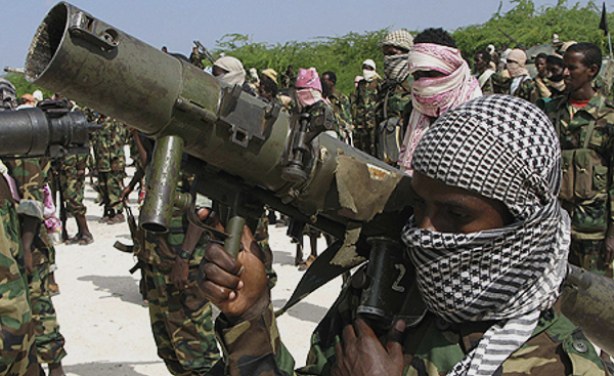
Escalation in Somalia is a US Foreign Policy failure in progress. Bonnie Kristian

While the Trump administration has very visibly made and modified plans to reduce U.S. military intervention in Syria and Afghanistan, it has quietly escalated the fight in Somalia. U.S. airstrikes in the North African nation are on the rise, The New York Times reported Sunday, and that higher pace of bombardment has contributed to increased civilian displacement and all the turmoil that comes with it.
This is a foreign policy failure in progress. If the last two decades of missteps in the Middle East and North Africa have demonstrated anything, it is that secretive wars of choice are prone to mission creep and rife with unintended consequences. Rather than expand, U.S. military intervention in Somalia should be shut down before it spirals into another needless generational conflict.
The United States has had some military presence in Somalia for the better part of three decades, and the current campaign began in 2007. But U.S. strikes were few—zero to three per year—until 2015, when former President Barack Obama started an upward trend the Trump team has continued. Last year, U.S. Africa Command (AFRICOM) reported 47 strikes. The first two months of this year put us on track to triple that by December.
Casualties from American strikes are up, too. Yet multiple steps away from accountability and transparency—notably President Trump’s 2017 decision to designate Somalia an “area of active hostilities” and his cancellation last week of an annual reporting requirement for U.S. drone strikes—have made independent assessments of this rising death toll difficult. Maybe, as AFRICOM says, every strike target is a militant linked to the terrorist group al-Shabab. Or maybe, as under the Obama administration, all military-age males who are killed are automatically tallied as combatants “unless there is explicit intelligence posthumously proving them innocent.”
We don’t know, and we have no apparent means of finding
But al-Shabab is hardly a significant threat to U.S. security. Its aims are provincial and its numbers are few. Its total fighting force is estimated at about 6,000, and the Times reports that an official from the State Department puts “the number of hard-core ideologues” as low as 500, a figure matched by the growing number of American boots on the ground in Somalia. Though certainly capable of executing horrific attacks in Mogadishu, al-Shabab cannot threaten vital U.S. interests. The U.S. offensive has not eradicated al-Shabab, nor has it made America meaningfully safer. There is no doubt of al-Shabab’s evil, but the value of an American military “solution” is very doubtful indeed.
That makes all the more troubling the suggestion from former U.S. Ambassador to Somalia Stephen Schwartz, who served under this administration and the last, that this war is now escalating simply because it can. “We were geared up for counterterrorism efforts in Somalia, and now there are more resources to do it, so we’re doing more of it,” Schwartz posited. “It could be there is some well-thought-out strategy behind all of this,” he continued, “but I really doubt it.” Multiple other former U.S. officials drew the same connection from drawdowns elsewhere in the greater Mideast to intensification of U.S. intervention in Somalia. Washington’s addiction to permanent, boundless conflict has dismissed strategy, prudence, and restraint to move straight from winding down one war to prolonging another.
At the start of this year, NBC News seemed to point to a new direction in the Trump administration’s Somalia policy. “Not every nasty character out there is a threat to the U.S.,” an unnamed official told NBC. “Do we want to do the Somali government’s job for it?” The comments fit well with Trump’s own critique of America as “the policeman of the world,” but his Defense Department promptly quashed any talk of a shift on Somalia, and since then the escalation has continued.
That is a mistake, and this redoubled commitment to endless war should be immediately reversed. U.S. military intervention in Somalia is exacerbating political instability without contributing to the security of the American or Somali people. This is not our fight, and we should stop fighting it.
Bonnie Kristian is a fellow at Defense Priorities and weekend editor at The Week.
more recommended stories
 Khaatumo Confirms: Al-Shabaab Behind Assassination of Ethiopian Diplomat
Khaatumo Confirms: Al-Shabaab Behind Assassination of Ethiopian DiplomatLaascaanood, SOOL – The already fragile.
 Ethiopian Diplomat Assassinated in Lasanod: Terror Shadows Eastern Sool
Ethiopian Diplomat Assassinated in Lasanod: Terror Shadows Eastern SoolLasanod, Somaliland – April 20, 2025.
 OPINION | From Provocation to Incursion: How Somalia’s Political Games Sparked a New Frontline in Sanaag
OPINION | From Provocation to Incursion: How Somalia’s Political Games Sparked a New Frontline in SanaagBy Hussein Elmi | April 18,.
 Breaking News: Khaatumo Militia Launches Attack on Rural Village in Sanaag Region
Breaking News: Khaatumo Militia Launches Attack on Rural Village in Sanaag RegionErigavo, April 17, 2025 — Somaliland.com.


Leave a Comment